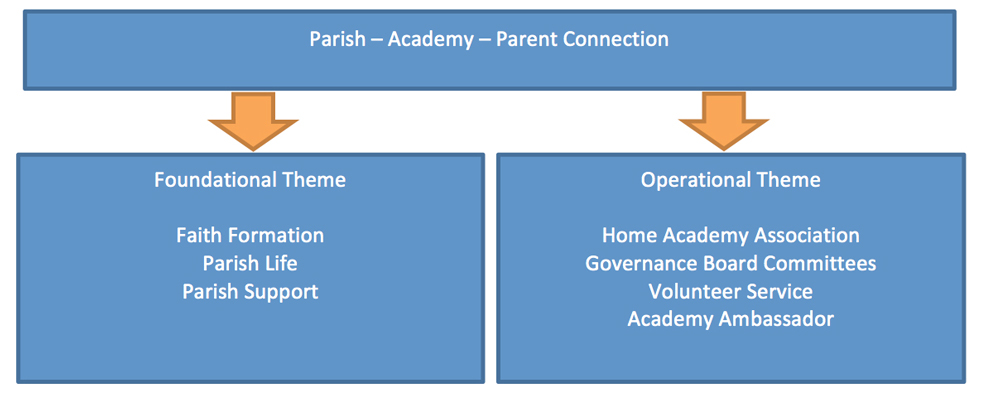By Brother Ralph Darmento, F.S.C., deputy superintendent, Office of Catholic Schools

The school reform movement posits a number of factors leading to the achievement of students and the success of the school. One factor points to the involvement of parents in the education of their children. No surprise to Catholic educators!
The Church has traditionally recognized parents as the primary educators of their children. Parents model the faith, teach ethical decision-making, and by the witness of their lives, provide a compass for living morally and advancing the common good of the Church and society.
No fewer than 30 Church documents point to six important themes relative to parents and Catholic schools. The first two indicate the parental role as teacher of their children and as witnesses of the faith. The remaining themes include continuing parent formation and catechesis, the necessary collaboration between parent, school and parish, parental involvement and the right of parents to choose a Catholic education for their children.
The academies/schools of the Diocese of Brooklyn acknowledge the role of parents as the primary teachers of their children and the academy/school as “a second home,” where the spiritual and intellectual formation is deepened.
For these reasons the academy/school, in conjunction with the host and aligned parishes, places a strong emphasis on the connection between the home and the academy/school. In tandem with the parish faith formation programs, parents are encouraged to develop their faith life and participate in the liturgical and sacramental life of their parish.
The extent of parent involvement with the academy/school includes knowledge and support of the educational programs, communication with teachers and administrators, membership in the Home Academy Association and support for programs that nurture the sustainability of the academy/school. Research indicates that student achievement increases as parental involvement increases.
From its inception, the academy governance model noted the importance of “creating a new paradigm of ‘multiple partnerships’ to strengthen every aspect of a Catholic elementary school’s life and to transform it into an academy that includes competent lay leadership in its governance.”
The partnerships that have been created reach into a myriad of communities: business, university, Church, social services, philanthropic and of course, parents. Without the engagement of the parents of our Catholic academies/schools, the vitality and sustainability of these excellent communities of faith and learning would be compromised.
Therefore, research suggests and experience reveals that pastors of host and aligned parishes must continue to foster and promote a comprehensive vision of Catholic education that extols the academy/school as an essential ministry of each parish.
Second, attention must be given to create programs that assist parents to understand the importance of Catholic education in the life of the Church. Third, it must recognized that the Catholic academy/school is a “special and privileged place of Christian education,” which collaborates wholeheartedly with the home.
Realization of this fact will enable energies to be spent on our children to advance them in the faith and provide them with an education that promotes critical thinking, collaboration, communication and creativity tools for a faith-filled citizenry that furthers the common good.

